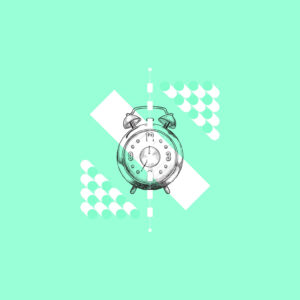
Why Intelligence Alone Doesn't Translate Into Leadership
High-IQ executives, brilliant founders, elite operators—people who can think faster, see further, and model complexity at a level others can’t touch; these people are everywhere. But beneath the surface, a quiet contradiction is unfolding. These individuals, already trusted to lead, are increasingly unable to hold alignment, direct movement, or stabilize teams under pressure.
It’s not because they’ve gotten weaker. It’s because modern systems no longer reward intelligence as a leadership function. They demand something else—something most of the smartest people were never conditioned to develop: behavioral governance.
In high-output environments, intelligence is an entry point—but not a stabilizer. It can map the complexity, analyze the risk, and build visionary scaffolds. But when leadership breaks down, it rarely does so at the intellectual level. It fails in execution rhythm, emotional containment, and role clarity. The smartest person in the room often sees the problem early—but can no longer interrupt it.
This is the drift no one is naming.
What has changed is the field. Today’s teams don’t just need direction—they need behavioral regulation. When structure is thin and trust is strained, people don’t orient to strategy—they orient to tone. And most intellectually dominant leaders had no model for managing tone. They try to lead through clarity of thought, but ignore the unresolved emotional and behavioral patterns that destabilize systems under pressure.
The result is consistent: intellectual leadership that becomes performative. Leaders try to explain their way into alignment. They substitute analysis for direction. They signal competence, but transmit no containment. And their systems, though smart on paper, become ungovernable in practice.
This breakdown isn’t due to lack of care or capability. It’s the side effect of a system that over-rewards intelligence while under-developing discernment, boundary-setting, and consequence enforcement. The smartest people are often conflict-avoidant not because they lack courage—but because no one ever taught them that enforcement is care. That containment is leadership.
Without this recalibration, high-IQ leaders become late to rupture. They delay truth in favor of logic. They tolerate distortion because they can intellectually justify it. And they underestimate the damage caused by what they refuse to confront. When the system eventually collapses, they’re confused—because in their mind, everything made sense.
But behavior doesn’t follow intelligence. It follows signal. People don’t respond to ideas—they respond to what the system allows, what tone is enforced, and what consequences are real.
This is why so many of the most brilliant operators are quietly burning out or stepping back. Not because they’ve failed, but because the structure they trusted to hold them no longer exists. They weren’t trained to build it. And without it, their intelligence becomes a liability—driving them to hold more complexity than the system can absorb, while being blamed for outcomes they never directed.
Leadership now requires something intelligence alone cannot deliver: behavioral authority. Not in the form of dominance or control, but in the ability to anchor pace, enforce clarity, regulate presence, and name distortion in real time.
Until that shift is made, the smartest people will continue to defer, over-explain, or detach—mistaking thoughtfulness for trust, and precision for power.
The future of leadership isn’t just about capacity to think. It’s about the capacity to hold. The people who will lead next are not those with the best ideas. They are the ones whose behavior stabilizes systems when pressure rises—who can restore rhythm, protect truth, and act without collapse.
Intelligence will always be valuable. But without behavioral authority, it cannot lead.







